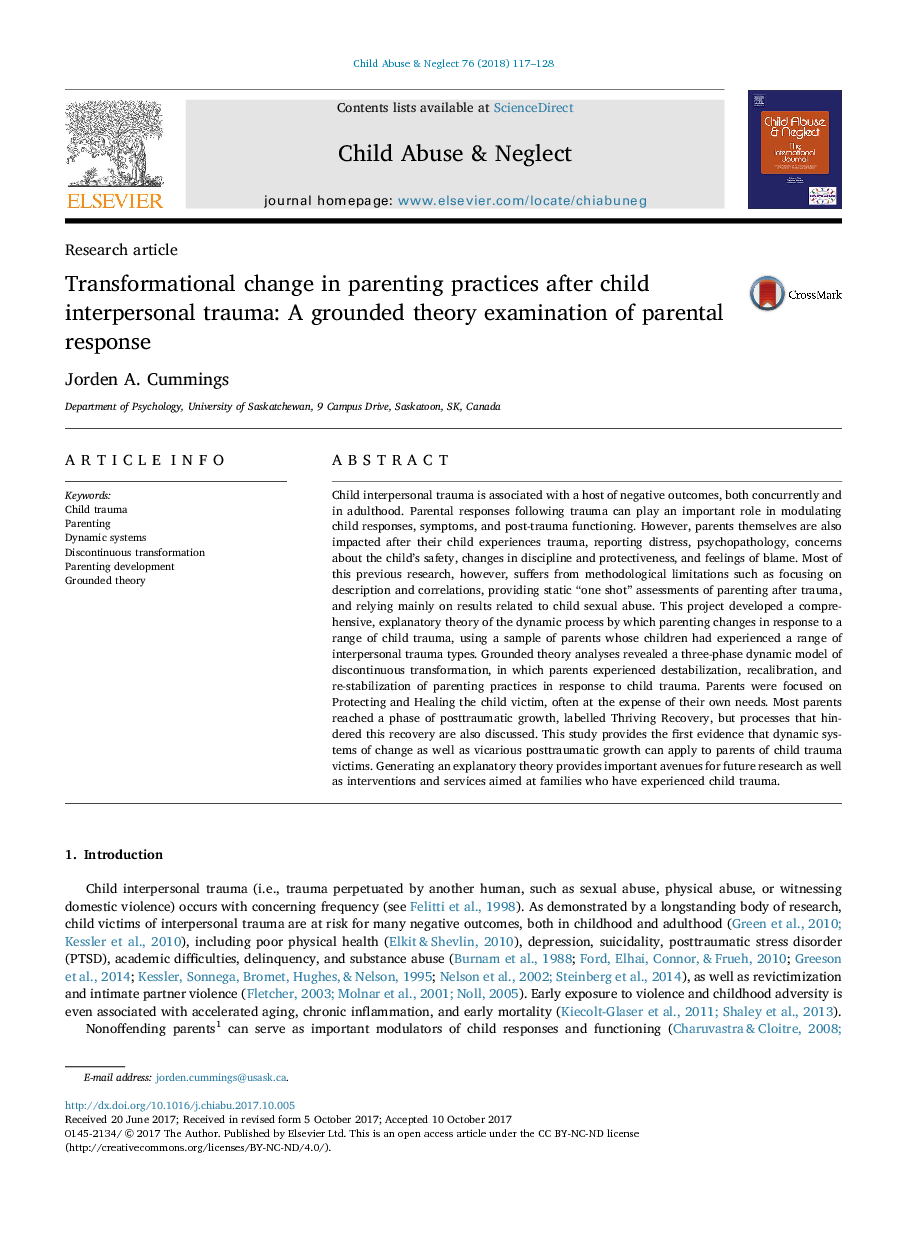ترجمه فارسی عنوان مقاله
تغییرات تربیتی در شیوه های فرزندپروری پس از آسیب های بین فردی: تئوری مبتنی بر نظریه پاسخ والدین
عنوان انگلیسی
Transformational change in parenting practices after child interpersonal trauma: A grounded theory examination of parental response
| کد مقاله | سال انتشار | تعداد صفحات مقاله انگلیسی |
|---|---|---|
| 115299 | 2018 | 12 صفحه PDF |
منبع

Publisher : Elsevier - Science Direct (الزویر - ساینس دایرکت)
Journal : Child Abuse & Neglect, Volume 76, February 2018, Pages 117-128
ترجمه کلمات کلیدی
تروما کودک والدین، سیستم های پویا، تحول انزوا، توسعه والدین، تئوری مبتنی بر،
کلمات کلیدی انگلیسی
Child trauma; Parenting; Dynamic systems; Discontinuous transformation; Parenting development; Grounded theory;

